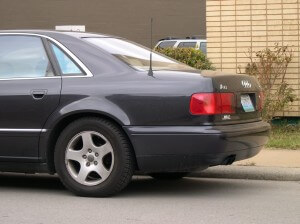 Thanks to freelance writer Cara Aley for this guest post, just in time for year-end gathering of all those receipts and expenses!
Thanks to freelance writer Cara Aley for this guest post, just in time for year-end gathering of all those receipts and expenses!
As a freelance writer, it can be a bit of a feast or famine lifestyle. As a result, when paying taxes, you must be certain to take advantage of the multitude of tax deductions you rightfully deserve as a small business owner.
This is a list of numerous possible deductions- there are many more where these come from, so be sure to speak to your accountant about this list (and do so well before tax time, as those receipts are key!).
Consulting fees. So when you speak to that accountant about all of the deductions you are entitled to, you can deduct the fees you will be charged in doing so! If you are unlucky enough to have to seek legal counsel, these fees can also be deducted.
Travel. Are you meeting a client or potential client (or your accountant) in the city? Be sure to keep toll receipts and track mileage, as both are deductible. Parking fees should also be tracked.
Car insurance. Just as you can deduct travel expenses, you are being insured along the way for this travel, and that expense can thus be deducted! Check out options for car insurance online to get the best possible rates.
Be sure to track that work travel – and any parking, insurance, or other fees associated with it!
Health insurance. As of 2010, you can deduct your health insurance fees.
Rent or mortgage expenses. Do you work out of your home? Then you can definitely deduct some of the cost of your monthly rent or mortgage expenses. The amount tends to be up to about 33% of your total expenses- this is something you can work with your accountant to determine.
 Office supplies. Save receipts for all paper, pens, that snazzy laptop you bought, and anything else that you are using for your business in your office. That includes any software you buy for your laptop, an example being Adobe Illustrator.
Office supplies. Save receipts for all paper, pens, that snazzy laptop you bought, and anything else that you are using for your business in your office. That includes any software you buy for your laptop, an example being Adobe Illustrator.
All of that stuff on your desk? Track it for deduction!
Did you pay for website design? All fees associated with the design and build of your website, including monthly hosting and email marketing fees, can be written off.
Your cell phone. Deduct up to 30% of this monthly fee. Try to get a line itemized cell phone bill in case you are audited, so that you can prove which calls were business calls. Another option is to have a cell phone or landline that is entirely dedicated to your business, and then you eliminate the need for tracking.
Unpaid bills. This is a big one and is called business bad debt. If you have customers who have not paid their bills, this can and should be deducted on your income tax return.
Shipping fees. If you are shipping manuscripts, or having items shipped to you for review or for use in your home office, this can also be deducted.
The short of it is that if you spend anything at all in relation to your business, it can very likely be deducted, and you’d be nuts not to consider this given how highly taxed freelancers wind up being compared to the rest of the working world. Just be sure to keep those receipts, folks! You will need them when you meet with your accountant, or in a worst-case scenario, the IRS.
Cara Aley is a freelance writer who covers a wide variety of topics, from digital marketing strategy to health and wellness.

Good tips – I use them all!!
But I always understood the IRS guidelines (to the extent they CAN be understood!) as they relate to auto travel to be that you EITHER deducted (a) business mileage/parking/tolls…OR you deducted (b) insurance/repairs/leasing/auto depreciation but NOT both. (And of course, if doing the latter method, you’d have to first apportion what percentage the vehicle is used for business and what percentage for personal). Thoughts?